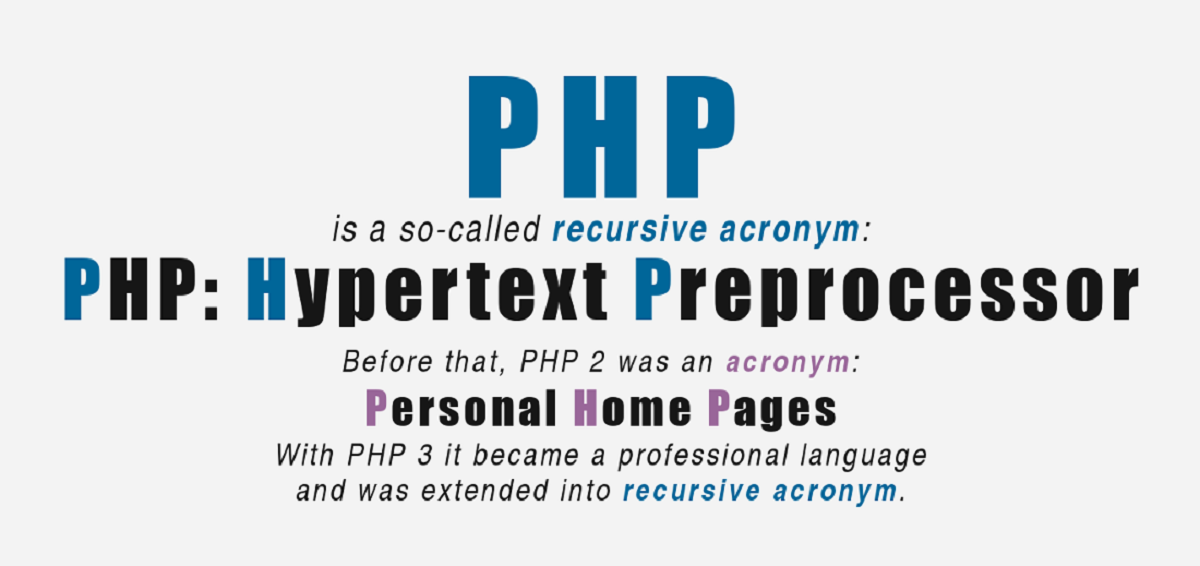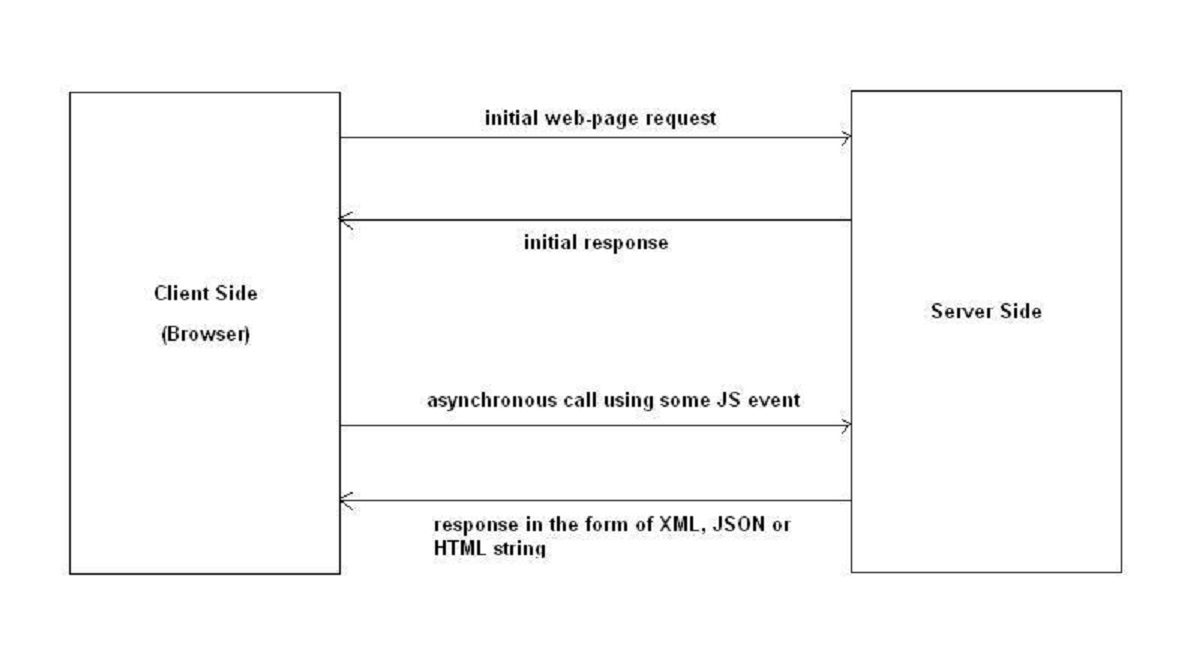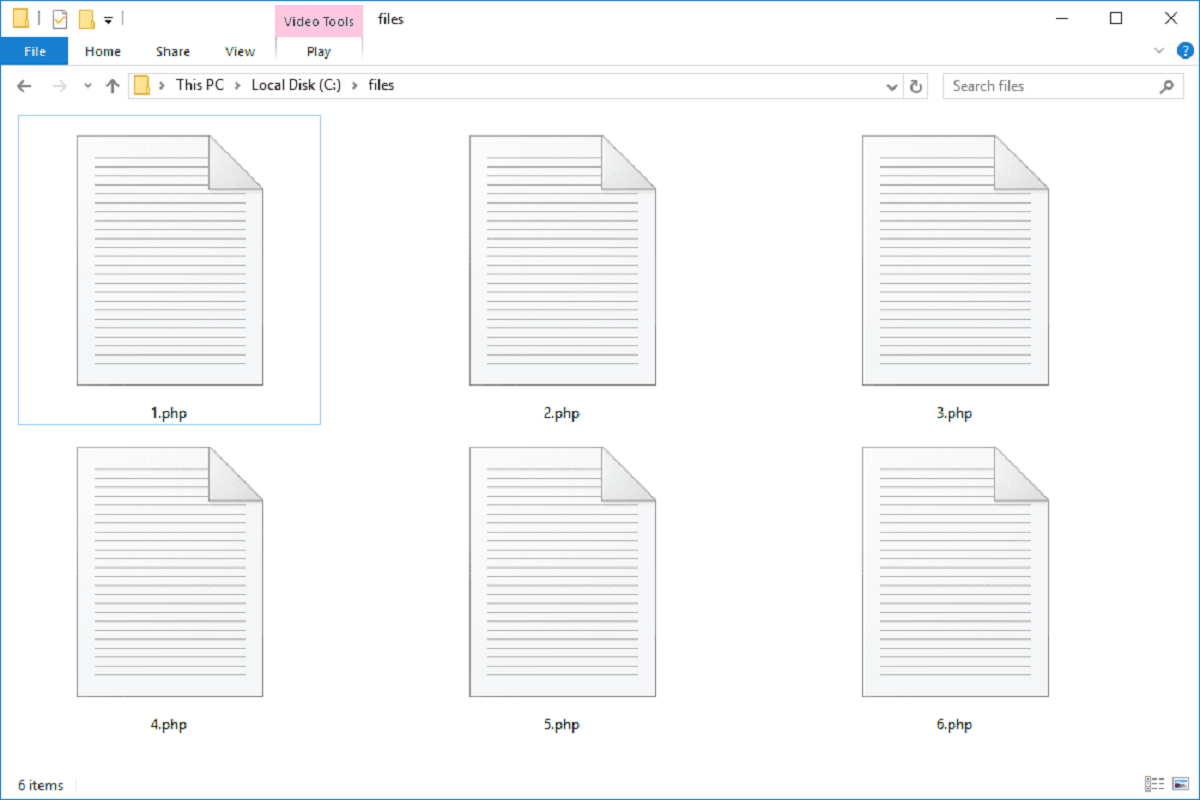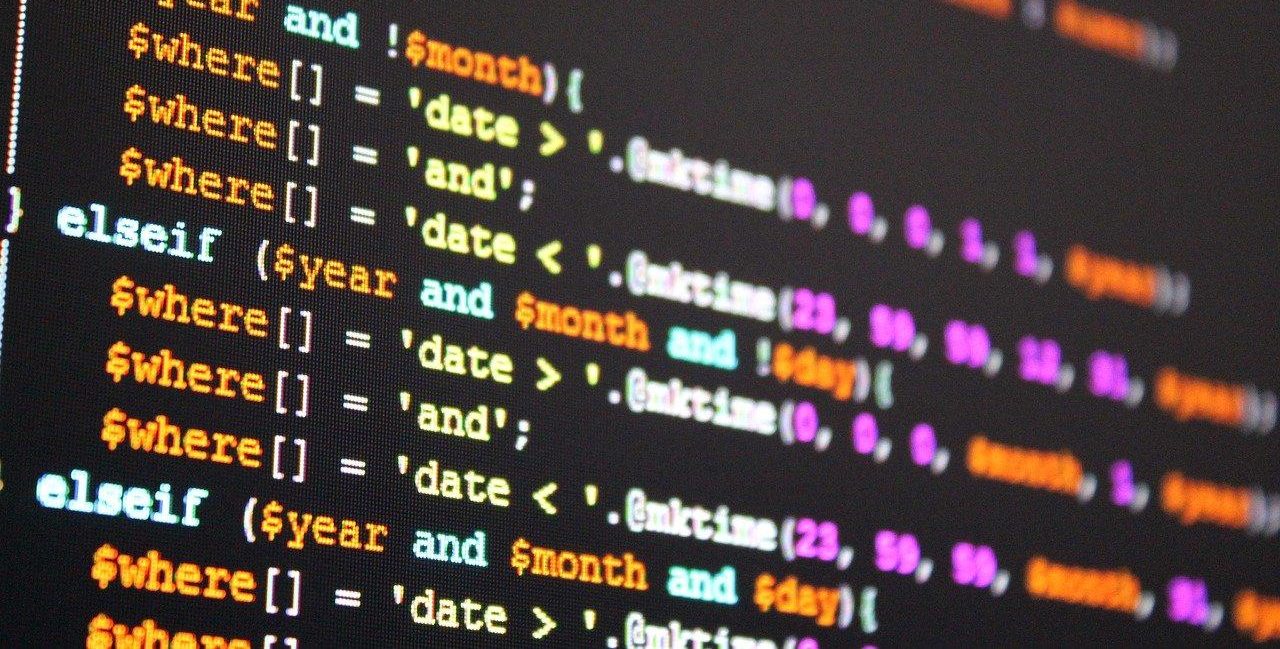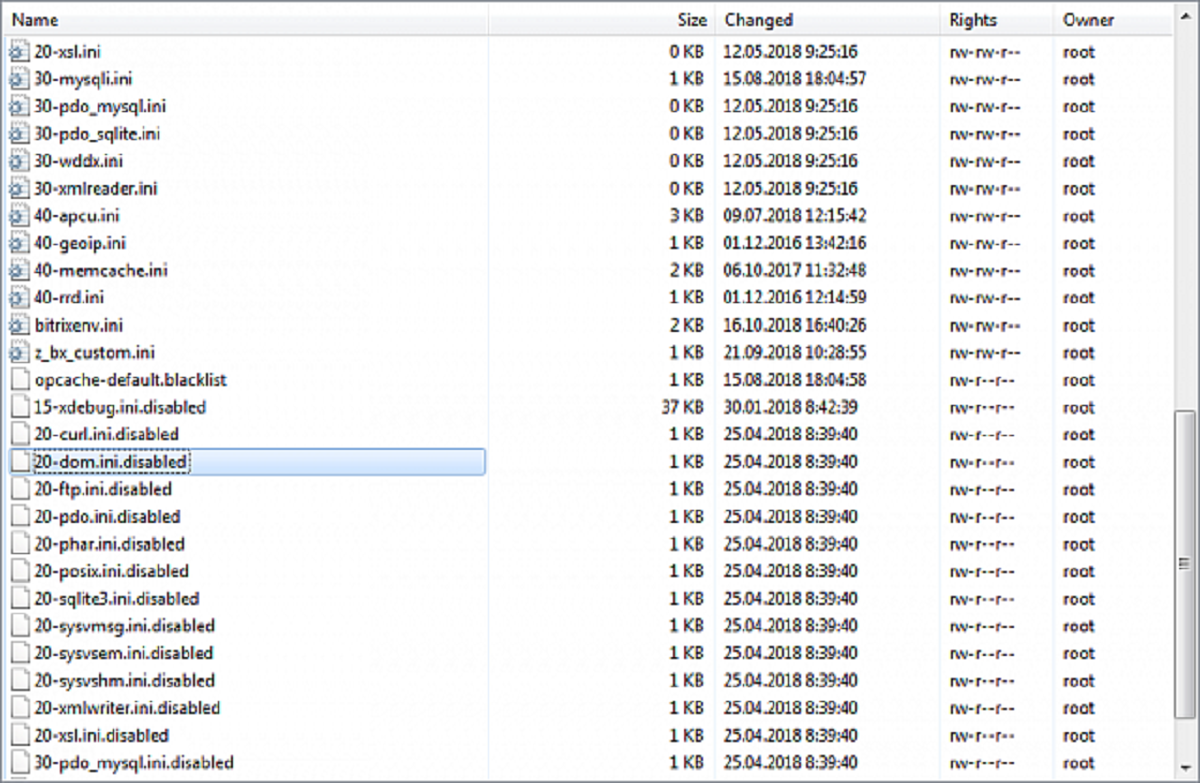Introduction
Are you passionate about web development and want to become a PHP developer? PHP is a widely used server-side scripting language that powers millions of websites and web applications. Whether you are a beginner or have some programming experience, this guide will help you kickstart your journey to becoming a PHP developer.
PHP, which stands for Hypertext Preprocessor, is known for its simplicity and versatility. It is often chosen by developers for its ease of use and wide range of functionality. With PHP, you can create dynamic and interactive web pages, handle form submissions, connect to databases, and so much more.
In this comprehensive guide, we will take you through the steps to become a proficient PHP developer. From learning the basics of PHP syntax to mastering advanced concepts and building a portfolio, we will cover everything you need to know to launch your career in PHP development.
Whether you are interested in freelancing, joining a development team, or starting your own web development business, mastering PHP will open up a world of opportunities. The demand for skilled PHP developers is high, and companies are constantly seeking professionals who can create robust, scalable, and secure web applications.
Throughout this guide, we will provide you with practical tips, resources, and best practices to accelerate your learning and help you become a successful PHP developer. So, let’s dive in and unlock the exciting world of PHP development!
Getting Started with PHP
If you’re new to PHP development, getting started may seem daunting. However, with the right approach, you can quickly learn the basics and start building your first PHP-powered applications.
The first step is to set up a development environment. You’ll need a web server and PHP installed on your machine. One popular option is to use XAMPP, which includes Apache, MySQL, PHP, and other software tools in a convenient package.
Once you have your development environment ready, you can start writing PHP code. PHP files typically have a .php extension and contain a mix of HTML and PHP code. To execute PHP code, it must be enclosed within tags.
Next, it’s essential to understand the basic syntax and data types in PHP. PHP supports variables, operators, conditionals, loops, and functions, just like most programming languages. Familiarize yourself with these concepts by studying online tutorials and practicing with simple code examples.
As you progress, it’s crucial to practice good coding habits and follow best practices. Utilize proper indentation, meaningful variable and function names, and comment your code to improve readability. Also, adhere to the established coding conventions and style guidelines to ensure consistency in your codebase.
One valuable resource for PHP developers is the official PHP documentation at php.net. It contains detailed explanations, examples, and references for all PHP functions and features. Make it a habit to consult the documentation whenever you encounter a new concept or need guidance on PHP functions.
Another helpful tool for PHP development is an integrated development environment (IDE). IDEs provide features like code completion, syntax highlighting, and debugging tools to streamline your development workflow. Popular PHP IDEs include PhpStorm, Visual Studio Code, and Eclipse.
Lastly, to reinforce your learning and gain hands-on experience, start building small projects using PHP. Create a simple contact form, a blog, or a basic CRUD (Create, Read, Update, Delete) application. By applying what you’ve learned, you’ll gain practical knowledge and become more confident in your PHP skills.
Remember, becoming proficient in PHP requires consistent practice, continuous learning, and a problem-solving mindset. Embrace challenges, seek guidance from the developer community, and make use of online resources to enhance your skills.
Learning the Basics of PHP
Once you have set up your development environment and familiarized yourself with the syntax of PHP, it’s time to delve into the fundamentals of the language. Understanding the basics is crucial for building a strong foundation as a PHP developer.
One of the first concepts to grasp is variables and data types in PHP. PHP supports various data types, including strings, integers, floats, booleans, arrays, and more. Learn how to declare variables, assign values, and perform operations on different data types.
Next, learn about control structures such as if statements, loops, and switch statements. These structures allow you to control the flow of execution in your PHP code based on certain conditions. Mastering control structures is essential for implementing logic and making your PHP code dynamic.
Functions are another crucial aspect of PHP development. Functions allow you to organize and reuse code. Learn how to declare user-defined functions and utilize built-in PHP functions to perform common tasks, such as manipulating strings, working with arrays, or handling file operations.
Handling user input and form submissions is also an integral part of web development. Learn how to process form data sent via POST or GET methods and perform validation and sanitization to ensure the security and integrity of your applications.
In addition to the core PHP language features, it’s also important to familiarize yourself with PHP modules and extensions. Explore modules like MySQLi and PDO for database connectivity, GD for image manipulation, and cURL for making HTTP requests. These modules can enhance the functionality of your PHP applications.
As you learn, take advantage of online resources such as tutorials, video courses, and interactive coding platforms. Websites like Codecademy, W3Schools, and PHP.net offer comprehensive tutorials and exercises to improve your PHP skills.
Another effective approach to learning PHP is by studying and analyzing existing open-source projects. GitHub is a treasure trove of PHP projects that you can explore, learn from, and contribute to. By examining the code of experienced PHP developers, you can gain insights into best practices and industry standards.
Remember, mastering the basics of PHP is just the starting point. Building a solid understanding of the fundamental concepts will empower you to tackle more complex PHP projects and continue your journey towards becoming a proficient PHP developer.
Understanding PHP Fundamentals
Once you have a good grasp of the basics of PHP, it’s time to delve deeper into the key concepts and fundamental principles that power PHP development. Understanding these fundamentals will enable you to write efficient and maintainable PHP code.
One important aspect to understand is PHP variables and variable scope. PHP has different types of variable scope, including global, local, and static. Understanding how variables are scoped and when to use each type is crucial for writing clean and bug-free code.
Next, dive into the concept of arrays in PHP. Arrays allow you to store and manipulate multiple values. Learn about indexed arrays, associative arrays, multidimensional arrays, and how to use PHP array functions to perform common operations like sorting, filtering, and merging arrays.
PHP provides various built-in functions that can significantly simplify your code and enhance its functionality. Explore functions for manipulating strings, working with dates and times, performing mathematical calculations, and interacting with file systems. Understanding and leveraging these functions will save you time and effort in your development work.
Error handling is an essential skill for any PHP developer. Learn how to handle and report errors using PHP’s error handling features like try/catch blocks, custom error handlers, and error logging. Proper error handling is crucial for debugging and ensuring the smooth functioning of your PHP applications.
Another crucial aspect of PHP fundamentals is working with files and directories. PHP provides functions for reading and writing files, creating directories, and traversing directory structures. Understanding these functions will enable you to create file-based applications or interact with file systems in web development projects.
Regular expressions are powerful tools for pattern matching and manipulation of strings. Familiarize yourself with the syntax and functions for working with regular expressions in PHP. Regular expressions can be immensely useful for tasks like data validation, searching, and replacing text.
Understanding object-oriented programming (OOP) is essential for developing large-scale PHP applications. Learn about classes, objects, inheritance, encapsulation, and other OOP concepts. PHP supports OOP principles, and harnessing their power will greatly enhance the structure and maintainability of your code.
Lastly, ensure that you understand PHP security best practices. This includes sanitizing user inputs, validating form data, preventing SQL injection attacks, protecting against cross-site scripting (XSS) attacks, and implementing secure authentication and authorization mechanisms.
By mastering the fundamentals of PHP, you will be equipped with the knowledge and skills to build robust and scalable web applications. Continuously practice and explore real-world scenarios to solidify your understanding and become a proficient PHP developer.
Building Dynamic Web Applications with PHP
PHP’s versatility and power shine when it comes to building dynamic web applications. With PHP, you can create websites that interact with users, retrieve and store data in databases, and provide personalized experiences. In this section, we will explore how to build dynamic web applications using PHP.
One of the essential components of building dynamic web applications is working with forms and handling user input. PHP makes it easy to process form submissions and validate user data. Learn how to retrieve form data, sanitize and validate inputs, and display appropriate error messages to users.
A key aspect of dynamic web applications is database connectivity. PHP offers several database extensions, such as MySQLi and PDO, to interact with various database systems. Learn how to establish connections, perform CRUD operations (Create, Read, Update, Delete), and handle database transactions.
Utilizing PHP frameworks can significantly boost your productivity and speed up the development process when building dynamic web applications. Explore popular PHP frameworks like Laravel, Symfony, and CodeIgniter. These frameworks provide structure, built-in functionalities, and libraries that simplify tasks such as routing, database handling, and user authentication.
A crucial aspect of building dynamic web applications is managing user sessions and authentication. Learn how to implement secure user authentication systems using PHP’s session management functions, cookies, and secure password hashing techniques. Ensure that your applications protect user information and prevent unauthorized access.
Another important consideration when developing dynamic web applications with PHP is handling file uploads. Learn how to receive files from users, validate file types, move uploaded files to a specific location, and store file information in databases if necessary.
Dynamic web applications often require integrating external APIs to fetch data or perform actions. Familiarize yourself with PHP’s features for making HTTP requests, parsing JSON or XML responses, and handling API authentication. This knowledge will allow you to leverage the vast array of APIs available to enhance your applications.
Efficiently managing and displaying data is a critical skill when building dynamic web applications. Learn how to query databases, retrieve data, organize it, and present it to users in a meaningful way. Utilize PHP’s functions for formatting dates and numbers, handling pagination, and implementing search functionality.
Lastly, ensure that your dynamic web applications are secure and protected from common vulnerabilities. Implement input validation and sanitization to prevent SQL injection and XSS attacks. Explore techniques such as input filtering, parameterized queries, and output encoding to strengthen your application’s security.
By mastering the art of building dynamic web applications with PHP, you will be able to create engaging and interactive websites that deliver personalized experiences to users. Continuously explore new techniques, stay up to date with PHP advancements, and practice building diverse web applications to enhance your skills.
Working with Databases in PHP
Working with databases is a fundamental aspect of web development, and PHP provides powerful tools for interacting with various database systems. In this section, we will explore how to work with databases in PHP effectively.
PHP offers several database extensions, such as MySQLi (MySQL Improved) and PDO (PHP Data Objects), that allow you to connect to databases, execute queries, and retrieve data efficiently. Get acquainted with these extensions and choose the one that best suits your needs.
To establish a connection with a database server, you need to provide the necessary credentials, such as the server hostname, username, password, and database name. Learn how to establish connections securely and handle connection errors gracefully.
Once connected, you can execute queries to retrieve data from the database. Learn how to construct SQL queries using PHP variables and execute them using appropriate PHP functions. Familiarize yourself with different types of queries, including SELECT, INSERT, UPDATE, and DELETE, and understand how to handle the results returned by the database.
Working with databases often involves handling large amounts of data. PHP provides functions to fetch data row by row or retrieve all results at once. Learn how to use fetching methods like mysqli_fetch_assoc(), mysqli_fetch_array(), and PDOStatement::fetch() to get data in the desired format.
Sanitizing and validating user input is vital to prevent SQL injection attacks. Learn how to use prepared statements or parameterized queries to bind values safely and avoid SQL injection vulnerabilities. By using placeholders instead of directly embedding variables in queries, you ensure the security and integrity of your applications.
PHP provides functions for managing transactions, enabling you to group database operations and ensure data consistency. Learn how to begin, commit, and rollback transactions, making your database interactions more reliable.
An important aspect of database management is handling errors and exceptions. Learn how to handle database errors gracefully and provide meaningful error messages to users or log them for debugging purposes. PHP’s exception handling mechanisms allow you to capture and handle exceptional situations during database operations effectively.
Database normalization is a fundamental concept to design efficient and maintainable databases. Understanding normalization principles and applying them when designing your database schema can optimize query performance and prevent data redundancy.
Additionally, explore techniques for optimizing database performance, such as creating appropriate indexes on frequently queried columns, fine-tuning database configurations, and caching query results when appropriate. These optimizations can significantly enhance the efficiency of your database-driven applications.
Lastly, keep in mind that database security is paramount. Implement strong database access controls by assigning appropriate user privileges and restricting access to sensitive information. Regularly update database software and apply security patches to protect against potential vulnerabilities.
By mastering the art of working with databases in PHP, you will be able to build robust and efficient web applications that store and retrieve data seamlessly. Continually improve your skills and stay updated with the latest database technologies and best practices to ensure optimal performance and security.
Mastering PHP Frameworks
PHP frameworks are powerful tools that provide structure, pre-built components, and reusable code to streamline web development. Mastering PHP frameworks can significantly enhance your productivity and make your code more maintainable. In this section, we will explore the benefits of PHP frameworks and how to become proficient in using them.
One of the significant advantages of PHP frameworks is their ability to speed up development. Frameworks like Laravel, Symfony, CodeIgniter, and CakePHP offer built-in functionalities for common tasks such as routing, database interaction, form handling, and authentication. By leveraging these features, you can save time and focus on building unique and complex application logic.
Start by selecting a PHP framework that aligns with your project needs and preferences. Explore the features, community support, and available documentation of different frameworks. Familiarize yourself with the framework’s architecture, conventions, and coding standards.
Study the official documentation and tutorials provided by the framework creators. The documentation provides valuable information about the framework’s components, usage, best practices, and advanced features. Tutorials can guide you through the development of sample applications and help you understand the framework’s core principles.
Join online forums, communities, and social media groups dedicated to the framework you’re learning. These communities are excellent sources of knowledge, advice, and support. Engage in discussions, ask questions, and share your knowledge and experiences with fellow developers using the same framework.
Explore the ecosystem of add-ons, plugins, and extensions available for the framework. Many PHP frameworks have a rich collection of community-contributed packages that extend their functionality. These packages can save you time by providing ready-made solutions for common functionalities such as user management, caching, and API integrations.
When working with a PHP framework, understanding the MVC (Model-View-Controller) architectural pattern is essential. MVC separates the application logic into three interconnected components, making your code more organized and maintainable. Learn how to create models for data manipulation, views for user interface rendering, and controllers for handling requests and coordinating the flow of the application.
Practice building small applications or prototypes using the framework. Develop projects that implement various framework features and explore different aspects of web application development, such as authentication, database interactions, form handling, and RESTful API integration. Hands-on experience is crucial for mastering a PHP framework.
Stay updated with the latest releases and updates of the framework you’re using. Frameworks evolve over time, introducing new features, improving performance, and fixing bugs. Follow official blogs, release notes, and community discussions to keep up with the changes.
Consider contributing back to the framework’s community. Share your experiences, or if you discover a bug or have an idea for improvement, contribute to the framework’s repository on platforms like GitHub. Actively participating in the community not only helps you deepen your understanding but also helps the framework evolve.
By mastering PHP frameworks, you can enjoy the benefits of faster development, code reusability, and maintaining coding best practices. Continually enhance your skills, explore new frameworks, and apply your knowledge to real-world projects to become a proficient PHP developer.
Enhancing PHP Skills with Advanced Concepts
Once you have a solid grasp of the fundamental aspects of PHP development, it’s time to explore more advanced concepts that can elevate your skills and make you a more proficient PHP developer. In this section, we will delve into some of these advanced concepts and techniques.
Object-oriented programming (OOP) is an essential skill for PHP developers. Dive deeper into OOP principles like inheritance, polymorphism, and encapsulation. Understand how to design robust class hierarchies, create interfaces, and implement design patterns to write modular and reusable code.
Learn about namespaces and traits, two powerful features introduced in modern versions of PHP. Namespaces allow you to organize classes into logical groups and avoid naming conflicts, while traits provide a way to reuse code across multiple classes without using inheritance.
Dependency Injection (DI) and Inversion of Control (IoC) are architectural patterns that promote loosely coupled and testable code. Master these concepts and explore PHP frameworks or libraries that implement DI and IoC containers to enhance the modularity and flexibility of your applications.
Improve your understanding of PHP’s error handling mechanisms by exploring exception handling in greater depth. Learn how to create custom exception classes, catch and handle exceptions at different levels of your application, and create meaningful error messages for debugging and user feedback.
Explore caching techniques to optimize the performance of your PHP applications. Understand the various levels of caching, such as OpCode caching, query result caching, and data caching. Utilize tools like Memcached or Redis to implement caching solutions and reduce the load on your database or expensive computations.
Utilize asynchronous programming to improve the efficiency of your PHP applications. Learn about PHP extensions or libraries that enable non-blocking I/O operations, such as ReactPHP or Swoole. Asynchronous programming can be beneficial for tasks that involve network operations or handling multiple concurrent requests.
As your applications grow larger and more complex, implementing clean code principles becomes crucial. Dive into code quality concepts such as SOLID principles, DRY (Don’t Repeat Yourself) principle, and Single Responsibility Principle (SRP). These concepts ensure maintainable and easily extensible code.
Explore performance optimization techniques for PHP applications, such as optimizing database queries, reducing file I/O operations, and implementing efficient algorithms. Profiling tools and benchmarks can help you identify bottlenecks and areas for optimization.
Understanding different testing methodologies, such as unit testing and integration testing, is essential for producing high-quality and bug-free code. Learn how to write testable code and use testing frameworks like PHPUnit or Codeception to automate your testing process.
Lastly, stay up to date with the latest advancements in PHP and web development. Subscribe to PHP-related blogs, follow influential PHP developers on social media, and actively participate in online communities. Constantly expand your knowledge and experiment with new techniques and tools.
By enhancing your PHP skills with advanced concepts and techniques, you can tackle complex projects with confidence and produce high-quality, efficient, and maintainable code. Continually strive for improvement, embrace lifelong learning, and apply your knowledge to real-world scenarios to become an expert PHP developer.
Exploring PHP Security Best Practices
Ensuring the security of your PHP applications is essential to protect user data and maintain the integrity of your systems. PHP provides various security features and practices that you should implement to safeguard your applications from potential vulnerabilities. In this section, we will explore some of the PHP security best practices.
One of the most critical aspects of PHP security is sanitizing and validating user input. Always sanitize and validate any data received from users to prevent common security issues like cross-site scripting (XSS) or SQL injection attacks. Utilize PHP’s built-in functions such as htmlspecialchars() or prepared statements to effectively sanitize and validate user inputs.
Implement secure authentication mechanisms to protect user accounts and sensitive information. Use PHP’s password_hash() function to securely store passwords using strong hashing algorithms like bcrypt or Argon2. Utilize features like password_verify() to verify passwords during user authentication.
Protect your PHP applications against cross-site request forgery (CSRF) attacks by implementing CSRF tokens. Generate unique tokens for each session and validate them during form submissions or critical actions to ensure that requests originate from trusted sources.
Secure your PHP configuration files and sensitive information by storing them outside of the web root directory. By preventing direct access to these files, you reduce the risk of unauthorized access or exposure of critical information.
Prevent information leakage by avoiding detailed error messages in production environments. Configure your PHP settings to display generic error messages instead of specific error information that could assist attackers in identifying vulnerabilities in your application.
Implement proper access controls and authorization mechanisms to restrict user access to specific resources or actions. Use role-based access control (RBAC) or access control lists (ACL) to define and enforce permissions based on user roles or specific access rules.
Regularly update your PHP version and all PHP frameworks and libraries you are using. Stay informed about security patches and bug fixes released by the PHP community, and promptly apply them to your applications to address any known vulnerabilities.
Avoid using deprecated or insecure PHP functions and features. Deprecated functions may have security vulnerabilities, and insecure features can lead to code execution or information disclosure. Always consult PHP’s official documentation for recommended alternatives and secure coding practices.
Secure your database interactions by using parameterized queries or prepared statements to prevent SQL injection attacks. Avoid dynamically generating SQL queries by interpolating variables into strings, as this can make your applications vulnerable to SQL injection vulnerabilities.
Implement secure session management in your PHP applications. Use PHP’s built-in session handling functions and ensure that session IDs are securely generated and stored. Regenerate session IDs upon successful user authentication to mitigate session fixation attacks.
Regularly monitor and log security-related events in your PHP applications. Implement logging mechanisms to record critical events, such as failed login attempts or suspicious activities. Logs can help you track and investigate potential security breaches and provide valuable information for forensic analysis if needed.
By following these PHP security best practices, you can significantly reduce the risk of security vulnerabilities in your applications and protect sensitive data. Stay updated with the latest security practices, perform regular security audits, and conduct penetration testing to identify and address potential weaknesses in your PHP applications.
Building a Portfolio and Gaining Experience
Building a strong portfolio and gaining practical experience are essential steps towards becoming a successful PHP developer. A portfolio not only showcases your skills and projects but also demonstrates your ability to apply your knowledge effectively. In this section, we will explore how to build a portfolio and gain valuable experience as a PHP developer.
Start by identifying areas of PHP development that interest you the most, such as web application development, e-commerce solutions, or content management systems. Determine the type of projects you want to include in your portfolio, whether they are personal projects, freelance work, or contributions to open-source projects.
Create a personal website or online portfolio where you can showcase your work. Highlight your PHP skills, projects, and any additional technologies or frameworks you have experience with. Include descriptions of your projects, the technologies used, and the challenges you encountered during development.
If you don’t have any client projects, consider building your own web applications or websites. Choose projects that align with your interests and demonstrate your abilities in key areas of PHP development. Aim to include a variety of projects to demonstrate your versatility and problem-solving skills.
Working on open-source projects is an excellent way to gain experience and contribute to the PHP community. Find popular PHP projects on platforms like GitHub and start contributing by fixing bugs, adding new features, or improving documentation. This not only enhances your technical skills but also showcases your collaborative abilities to potential employers or clients.
Consider offering your PHP development services on freelancing platforms such as Upwork, Freelancer, or Fiverr. This allows you to gain real-world experience, work with clients, and develop professional relationships. Freelancing also provides opportunities to work on a diverse range of projects and challenges.
Seek internships or entry-level positions at web development companies or organizations. This can provide valuable hands-on experience, mentorship, and exposure to real-world projects. While working as an intern or junior developer, make an effort to learn from experienced developers, ask for feedback, and continuously improve your skills.
Networking is crucial for gaining experience and building connections in the PHP community. Attend local meetups, conferences, and online forums to connect with other PHP developers, exchange ideas, and stay updated with industry trends. Participating in developer communities can open doors to collaboration and job opportunities.
Showcasing your portfolio and experience on professional networking sites like LinkedIn can also attract potential clients or employers. Optimize your profile, highlight your PHP expertise, and leverage connections to create opportunities for career growth.
Continuous learning is essential to stay ahead as a PHP developer. Stay updated with the latest PHP frameworks, libraries, and industry best practices. Invest time in learning new technologies, attending workshops, taking online courses, or earning industry-recognized certifications to enhance your skill set.
Lastly, never stop building and refining your portfolio. As you gain experience and complete new projects, update your portfolio to showcase your growth and demonstrate your ability to adapt to evolving technologies.
By building a strong portfolio and gaining real-world experience, you can establish yourself as a credible PHP developer. Continuously seek opportunities to showcase your skills, stay engaged in the developer community, and seize any chance to contribute to open-source projects. With dedication and persistence, you will gain the experience needed to succeed as a PHP developer.
Finding PHP Development Job Opportunities
Now that you have developed your PHP skills and built a strong portfolio, it’s time to explore the job market and find opportunities to kickstart your career as a PHP developer. In this section, we will discuss effective strategies to find PHP development job opportunities and increase your chances of success.
Start by creating a professional and updated resume that highlights your PHP skills, projects, and relevant experience. Tailor your resume to each job application, emphasizing the specific PHP frameworks, databases, or other technologies requested by the employer.
Utilize online job portals and platforms dedicated to IT and web development. Websites like Indeed, LinkedIn, and Stack Overflow Jobs offer a wide range of job listings specifically for PHP developers. Regularly search for PHP developer positions and apply to those that align with your skills and career goals.
Join PHP-specific job boards or professional networks that cater specifically to PHP developers. These platforms often have job postings tailored to PHP developers, allowing you to connect directly with companies and employers looking for PHP expertise.
Networking plays a vital role in finding job opportunities. Attend local tech meetups, developer conferences, and networking events where you can meet potential employers and industry professionals. Engage in conversations, share your experiences and aspirations, and exchange contact information to stay connected.
Online communities and forums dedicated to PHP development are excellent places to connect with like-minded professionals and stay informed about job openings. Participate actively in these communities, contribute to discussions, and seek advice and recommendations from fellow developers.
Consider reaching out directly to companies or organizations that align with your interests and values. Research companies in your desired industry and location and inquire about any PHP developer positions or internships. Sending a personalized cover letter and resume directly to companies can demonstrate initiative and increase your chances of being noticed.
Freelancing platforms can also be a valuable source of job opportunities for PHP developers. Sign up on platforms like Upwork, Freelancer, or Toptal, and create a compelling profile showcasing your skills and experience. Bid on PHP development projects that align with your expertise and gradually build a reputation as a reliable and skilled freelancer.
Consider internships or entry-level positions as a stepping stone to gain practical experience and expand your professional network. Many companies offer internship programs specifically designed to nurture and develop emerging talent. While these positions may offer lower salaries initially, they can provide valuable learning opportunities and enhance your career trajectory.
Stay proactive in your job search by regularly updating your online profiles and keeping an eye on new job listings. Set up job alerts on relevant platforms to receive notifications when new PHP developer positions become available.
Lastly, don’t forget the power of word-of-mouth referrals. Let friends, family, and professional connections know that you’re actively seeking PHP development opportunities. Inform them about your skills and availability, as they may have insider knowledge of job openings or connections that can lead to potential job opportunities.
By using a combination of online platforms, networking, direct outreach, and freelancing opportunities, you can increase your chances of finding rewarding PHP development job opportunities. Stay persistent, keep enhancing your skills, and maintain an active presence in the PHP developer community to maximize your chances of success.
Conclusion
Congratulations on completing this comprehensive guide to becoming a PHP developer. You have learned the necessary steps and skills to kickstart your journey and become proficient in PHP development.
Through this guide, you’ve gained an understanding of the basics of PHP, explored advanced concepts, and discovered various tools, frameworks, and best practices that can enhance your PHP development skills.
Remember to continuously practice and improve your coding abilities. Experiment with new technologies, contribute to open-source projects, and take on challenging projects to build a diverse portfolio.
Networking and community engagement are critical for staying connected with other developers, learning from their experiences, and discovering job opportunities. Attend meetups, join online forums, and engage with the PHP developer community to expand your knowledge and professional connections.
Stay updated with the ever-evolving PHP ecosystem. Keep an eye on PHP’s latest releases, explore emerging frameworks and libraries, and stay informed about coding standards and best practices.
Becoming a skilled PHP developer is a continuous journey. Continually challenge yourself, seek growth opportunities, and embrace lifelong learning. As you gain experience and refine your skills, remember to keep building your portfolio and adapting to industry trends.
PHP development offers a world of possibilities, from freelancing and working with startups to joining established companies or even launching your own ventures. With dedication and passion, you can carve out a successful career as a PHP developer.
Now, armed with the knowledge and guidance from this guide, it’s time to embark on your PHP development journey. Embrace the challenges, stay curious, and never stop honing your skills. Good luck on your path to becoming a skilled and sought-after PHP developer!









